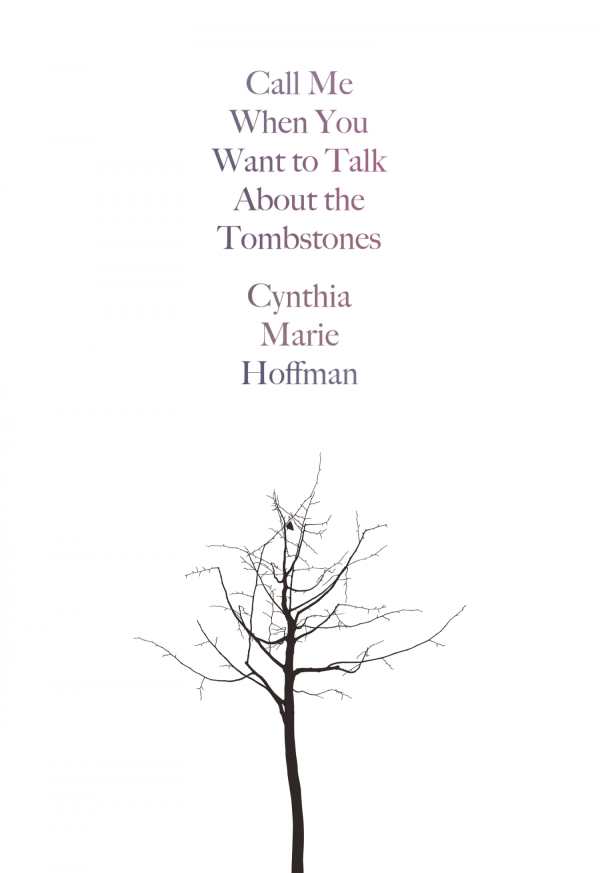Call Me When You Want to Talk about the Tombstones
In the opening scene of Cynthia Marie Hoffman’s Call Me When You Want to Talk about the Tombstones, the author and her mother comb Rose Hill Cemetery in Mt. Carmel, Illinois, searching for family graves. Hoffman’s mother carries a long list of names, and her daughter, the poet, snaps a picture of her. As in the rest of the book, history is being both sought and created. In discursive prose poems, Hoffman builds a fascinating collage of family stories, photographs, letters, and poetry.
Like Hoffman’s previous volumes, this too is a project book, its poems linked by a common purpose or idea. The poet’s mother and her fascination with family history ground the work; that fascination inspires Hoffman’s powerful awareness that the document she constructs will be part of her mother’s legacy, and also representative of her mortality.
As the two move through old houses, they imagine the lives of those who came before. The poet borrows voices from letters and intersperses them between her own lines and the conversation of her mother. The effect is an echo chamber of family—mothers and daughters, grandmothers and uncles speaking across the divide of time, linked by the remains—tombstones, houses, census records. Hoffman brings readers directly into the vortex of genealogy, which, like poetry, opens up new questions with every answer.
Hoffman’s precise eye for potential metaphors brings moments of unexpected lyricism to descriptions of rooms or cemeteries. The poet uses repetition not only to create the echo of kin, but also to illuminate the common impulses of family members to record and retell the family history. As Hoffman copies the lines of distantly related family members, she also addresses a day spent with her daughter, a day spent with her mother. Language comes to encompass more and different things across time. Hoffman resurrects lost relatives for a family eager to engage them.
Intricate and intelligent, these poems reveal the heart of the genealogical craze—to face mortality, and find a way to remember and be remembered.
Reviewed by
Camille-Yvette Welsch
Disclosure: This article is not an endorsement, but a review. The publisher of this book provided free copies of the book to have their book reviewed by a professional reviewer. No fee was paid by the publisher for this review. Foreword Reviews only recommends books that we love. Foreword Magazine, Inc. is disclosing this in accordance with the Federal Trade Commission’s 16 CFR, Part 255.

